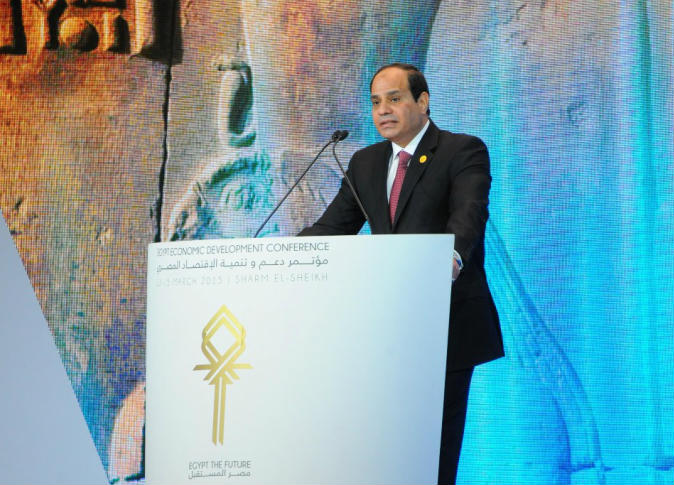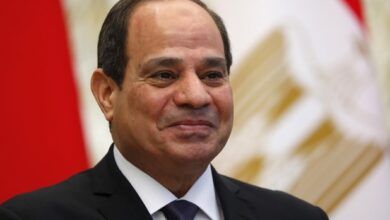
President Abdel Fattah al-Sisi was so confident after Egypt signed billions of dollars of deals at an investment summit that he publicly joked on Sunday about haggling with the world's top chief executives. Yet the real challenge has only just begun.
"To Egyptian and international partners, if you really want to contribute to developing this country, you must work night and day and, as for the cost, please give us a break," he said in his closing speech at the Sharm El-Sheikh resort, to applause and laughter.
Corporate giants such as General Electric, Siemens and BP signed major deals, Gulf Arab allies pledged $12.5 billion and top Western officials provided political support for the man who ousted Egypt's first freely elected president.
Egypt's prime minister said investment deals worth a total of $36 billion were signed at the summit. Including financed projects, and loans, but not the Gulf pledges, this Egypt had secured a total of $60 billion.
Sisi is riding a wave of nationalism, with Egyptians betting that he can deliver stability and economic growth with a series of mega-projects such as an expanded Suez Canal.
During his speech, he was flanked by young Egyptians taking "selfies" with the former army chief, who has portrayed Egypt as a bulwark against Islamist militancy engulfing several Arab countries.
At times Sisi had to ask his supporters to stop cheering so he could speak. Many foreign businessmen and bankers attending were impressed.
"What I can gather from this is the momentum behind this president is extraordinary," said Alex Thursby, CEO of Abu Dhabi National Bank.
But difficult times still lie ahead in a country where two-fifths of the population live on or around the poverty line and where more reforms are needed beyond the cuts in fuel subsidies and changes in the tax regime that have won Sisi praise from investors.
Egypt's economy is only just starting to recover from political upheaval triggered by the 2011 uprising that ended the 30-year rule of Hosni Mubarak and will require a lot more than populism to prosper.
"Egypt needs at least $200-$300 billion to (develop) … I know Egypt and its problems," Sisi said.
With the high-profile, glitzy three-day summit in Sharm el-Sheikh, Egypt aimed to send a clear message that it is serious about reforming the economy and creating big opportunities for investors.
FOREIGN INVESTMENT
A celebratory mood dominated the conference, with one of its highlights a party hosted by billionaire businessman Naguib Sawiris and a Lebanese pop singer.
Cairo wants to double foreign investment in this fiscal year to $8 billion, despite an Islamist insurgency in northern Sinai and frequent militant attacks across the country.
Sawiris, one of Egypt's top businessmen, said he was prepared to invest $500 million in the most populous Arab country.
But he said it was high time for the government to fire inefficient members of the bureaucracy – about 7 million civil servants who eat up 25 percent of the budget.
"Bureaucracy and corruption are married. You end bureaucracy, you kill corruption," he told Reuters in an interview.
Sherif El-Helw, managing director of Akanar Partners, an Egyptian investment firm that advised the government on investment strategies, said an original list of 120 proposals had been whittled down to 22 for the economic summit.
He questioned the wisdom of mega-projects such as the Suez Canal at the heart of Sisi's agenda, and said old habits die hard.
"I think smaller projects, a realistic project that can be completed in short periods of time, these are what the economy needs today," he said.
"It's very difficult and we have a long way to go. There is still an overwhelming culture and mentality of the old way of doing business. That's still there, and we have to be honest with ourselves."
One of the most ambitious projects is a new administrative capital with a price tag of $45 billion located east of Cairo. It is scheduled to be built in five to seven years.




